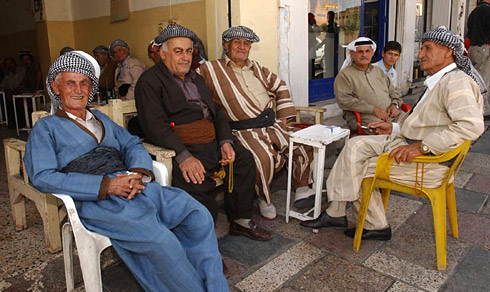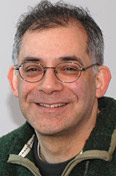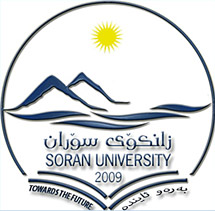The DNA of Kurdistan
Tue, 19 Jun 2012 12:24:00 BST
Major Kurdistan project to probe the past of an ancient people
AS Kurdistan forges a new future as an emerging democracy, a major project is underway to unearth the past of its people, who might have been the world’s first farmers. And the University of Huddersfield’s expertise in the analysis of ancient DNA samples is playing a crucial role.


Soran University in Kurdistan – which is a now a self-governing, democratic region – has signed a Memorandum of Understanding with the University of Huddersfield, home to laboratories and a team of researchers headed by Professor Martin Richards (pictured). He is acknowledged as a global leader in the science of archaeogenetics, which combines archaeology and DNA analysis in order to learn more about prehistoric peoples and how they migrated around the world.
The research project initiated by Soran University is named ‘Genetic Ancestry of Kurdish Populations’. PhD and Masters students are being recruited and research will be split between Kurdistan itself and the University of Huddersfield’s state-of-the-art laboratories.
DNA will be extracted from hundreds of samples collected from across Kurdistan and genetic sequencing will be used to gain a greater understanding of the origins of the Kurds, who have had a turbulent history.

Representatives of Soran University visited Huddersfield last year, and there was a reciprocal visit by a party from Huddersfield, who discussed areas of research collaboration. The genetic ancestry project was settled on, and Professor Andrew Ball, who is the University of Huddersfield Pro-Vice Chancellor for Research and Enterprise, visited Kurdistan to sign the MoU. Professor Richards has also visited Kurdistan in February this year to discuss the project and plans are now underway to recruit students and begin the sampling.
“This project is a great departure for us and enormously exciting,” says Professor Richards. “Kurdistan is archaeologically one of the most fascinating regions in the world – it was inhabited first by Neanderthals, escaping from Europe’s cold during the Ice Age, and soon after by modern humans as they came north from their African homeland about 50,000 years ago.
“Not only that, but it was quite possibly the place where people first took up farming, almost twelve thousand years ago. We’re hoping that this work will help us to see if there are traces of those early settlements in the genetic make-up of the modern-day populations of the region.”
Andrew Mandebura, who is the University of Huddersfield’s Head of International Projects, realised that there was growing potential for research collaboration with colleagues in Kurdistan. He organised a fact-finding visit in October 2011 to discover more about opportunities in the go-ahead region.
“The project with Soran was one of the links which we identified and has been built on in conjunction with our Research Office and School of Applied Sciences,” he said. “This included hosting the Vice-President of Soran University when he visited Huddersfield in February.”







